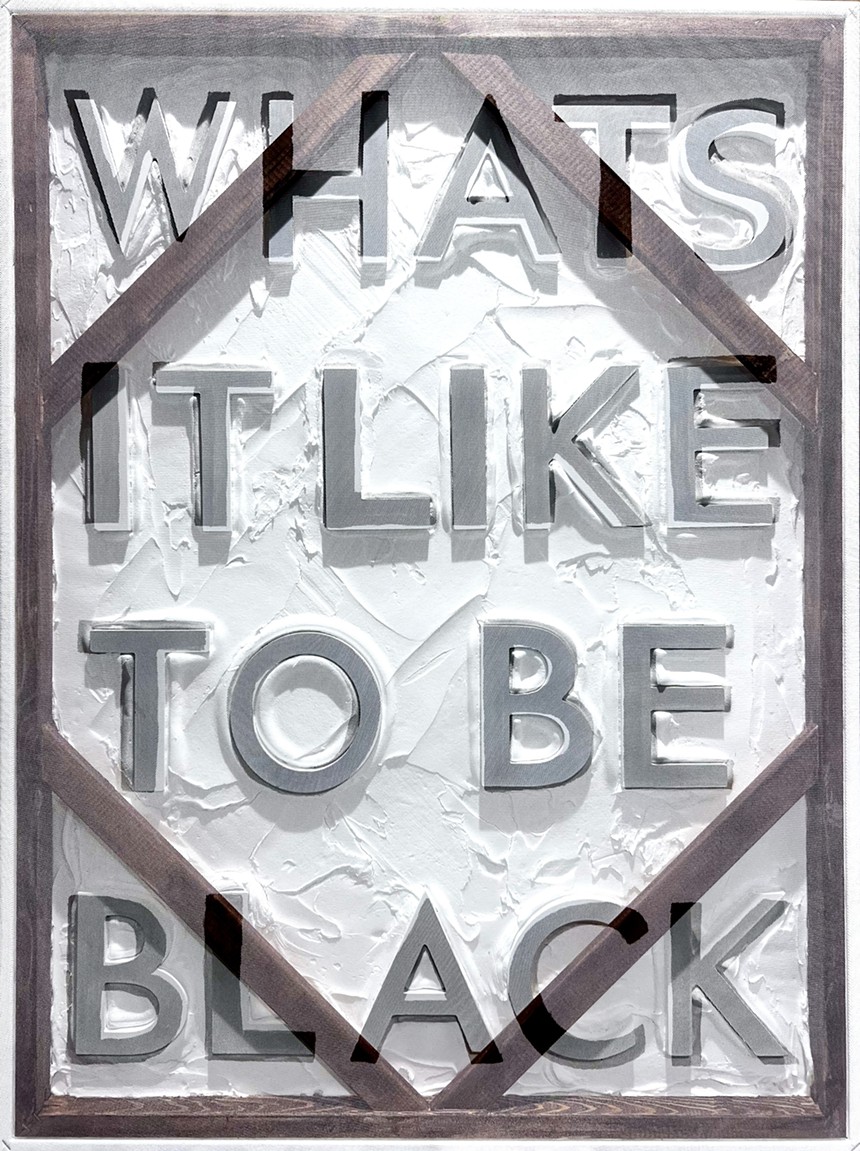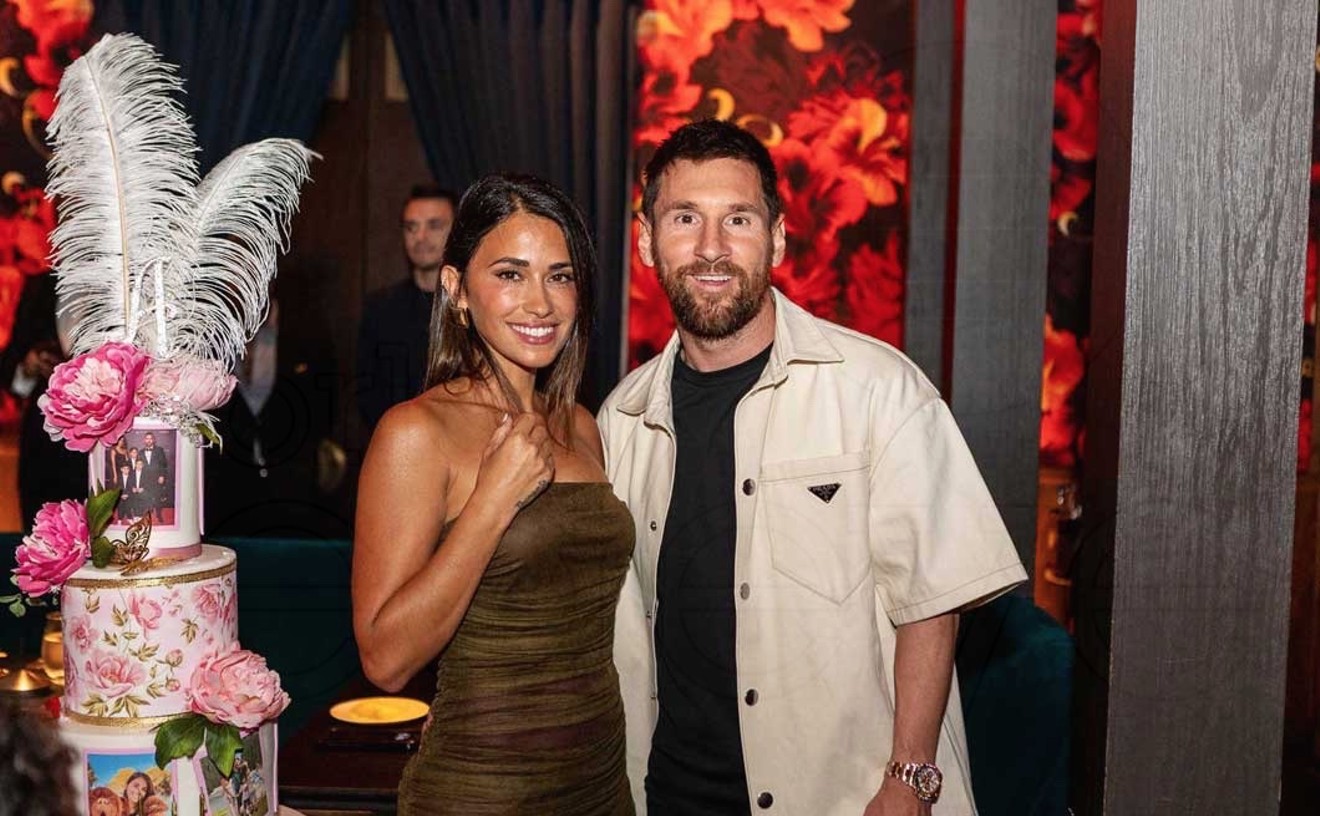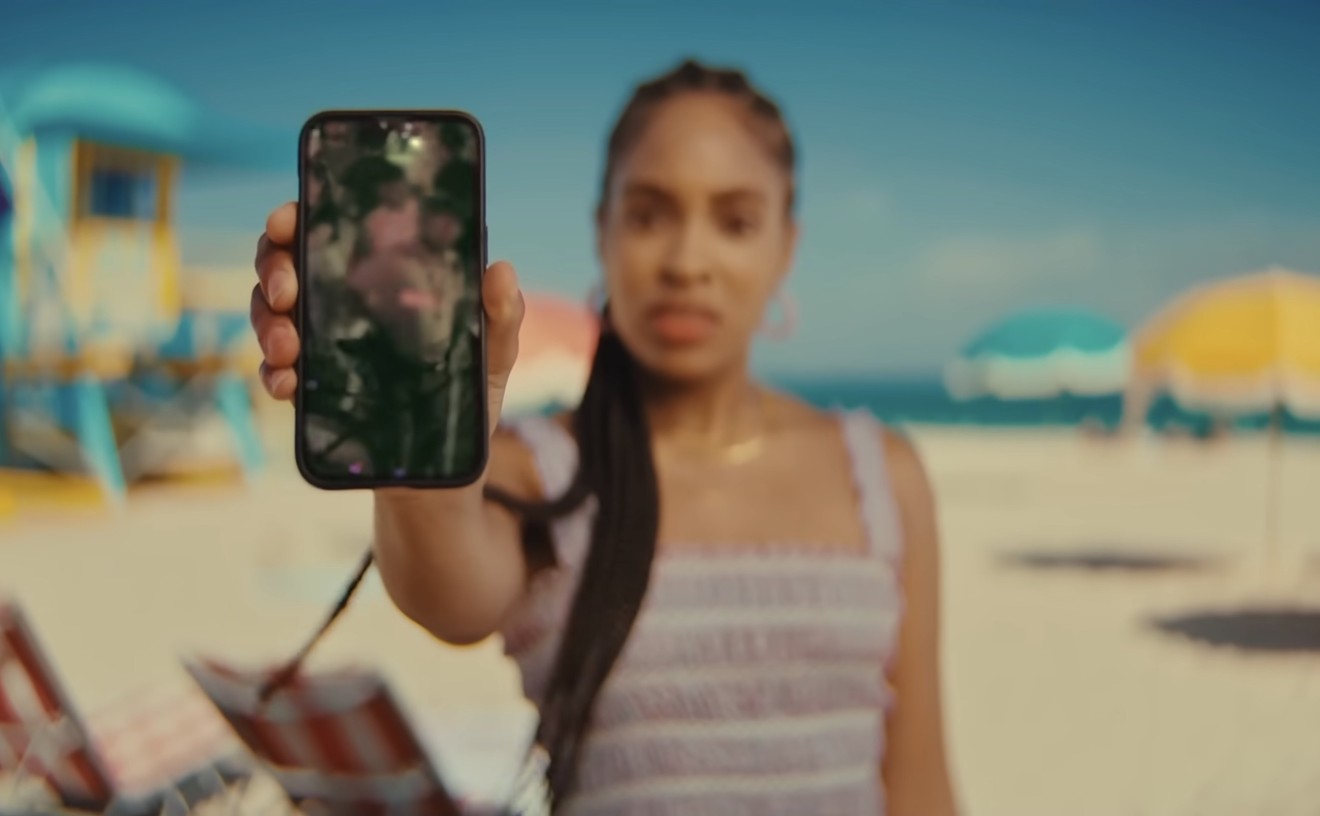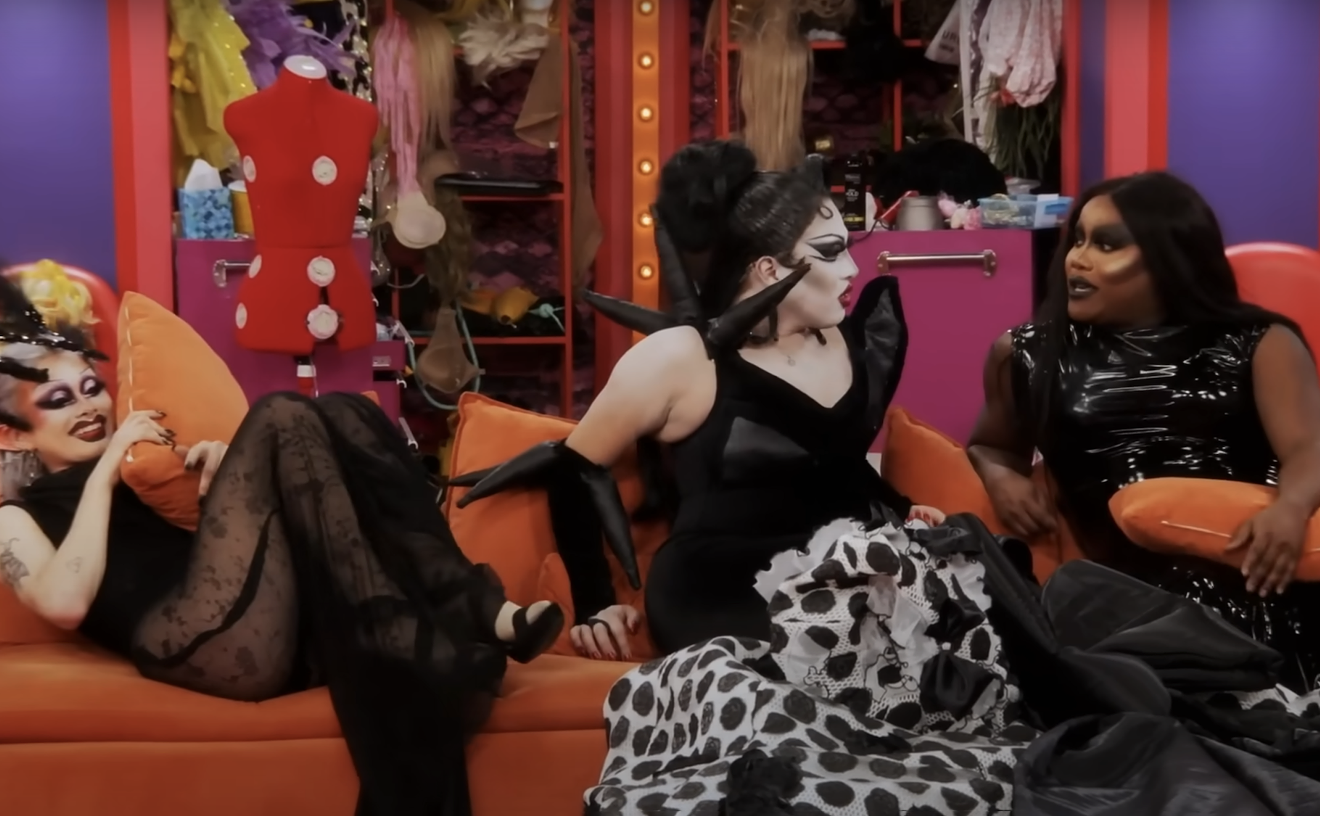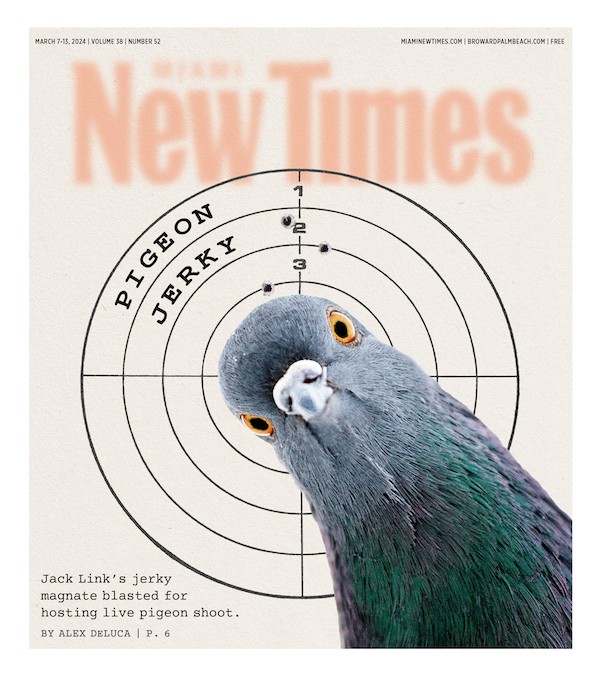The "Black card" notion has permeated popular culture, often serving as a humorous reference. However, its meaning and representation as a marker of racial authenticity have raised questions.
Artist Brandon Clarke also shares these concerns, which led him to create "Black Card: Transactions of Cultural Currency." The exhibition is on view through August 31 at the Historic Ward Rooming House in Overtown.
"We curated this show to have a conversation about authenticity and access within our own community and outside our community," says Clarke. "As we continue to make our Black voices known in America and around the world, we demand a seat at the table."
Delving into the intricacies of authenticity, access, and identity within the Black community, Clarke's idea is to challenge societal perceptions and shed light on the significance of the symbolic Black card as a representation of cultural validation.
"My vision is not only to get our seat at the table, but we can sustain our seat at the table?" What good is wealth if you cannot sustain it for generations to come? I feel to help accomplish this alongside the strides we have already made requires a level of cultural sustainability within ourselves. The Black card became the perfect catalyst to represent much of what we are fighting for and against."
The concept of the Black card is not exclusive to the Black community but extends to various cultural groups. "Cuban card," "Haitian card," or "Jewish card" are also figurative cards acting as signifiers of belonging and granting access to these specific cultures or communities.
In the Black community, some people have had their Black card "revoked" because they have never seen the TV series The Wire or the movie Friday, they don't like collard greens or sweet potato pie, or they enjoy pumpkin spice lattes.
Born in California, Clarke's family moved when he was 8 years old to Lewes, Delaware, what he calls a beach community. He attended Cape Henlopen High School.
Because he didn't grow up in a Black community or attended a majority Black school until he went to a historically Black college (Hampton University), he says he faced challenges to his authenticity, with people questioning his Blackness due to engaging in activities that did not align with certain stereotypes.
"Oftentimes people question your authenticity when your experiences are different from theirs," he says. "Sometimes, someone can lose his Black card, not because of what he may not know about the culture, but what activities he participated in."
He says he surfed, snowboarded, and skateboarded — activities he enjoyed.
"But people often questioned my Blackness because of it. Growing up, I found out that a lot more Black people like myself had the same experiences."
Reflecting on the level of Blackness, the Miami-based artist acknowledges that he is not sure "what the bar is." However, he firmly believes that being Black in America is a precious gift, a tribute to the courageous legacy of his ancestors who faced countless limitations.
Quoting Christopher Norwood of Hampton Art Lovers, who co-curated and commissioned the show, the artist states, "As we expand our horizons and what it means to be Black in America, our ancestors expand their smiles."
To explore the concept of the Black card in his artwork, Clarke obtained a collection of black credit cards, which became the focal point of his creative expression. Some pieces portray the physical black credit card embedded within paintings, while others take a metaphorical approach, symbolizing transactions across various spaces, including marketing, social interactions, and economic evaluations.
"Our Blackness just doesn't reach within our own community, but it stretches out the borders of who we are within this nation and even internationally," says Clarke.
In deconstructing the idea of the Black card as a euphemism for Black identity, the South Dade artist views it as a tool designed to confine individuals to predefined notions of Blackness.
"The Black Card ultimately does not exist; it's a tool to keep you in a box. But cultural currency is real, and we need to harness our culture and respect it as an economic tool for development," proposes the artist. "Black culture absolutely drives the music business and sports; no one would argue with that statement. But the potential of our culture could also drive and revolutionize math and science."
Clarke firmly establishes a connection between the symbolic Black card and its real-life counterpart in the realm of credit and currency. He identifies the Black card as the ultimate symbol of luxury and access, paralleling it with Black culture's value and global influence, which has been at the forefront of defining "cool" since the Harlem Renaissance.
Hampton Art Lovers, the event organizers, have played a crucial role in presenting Clarke's artwork. The collaboration between the artist and the gallery stems from a shared love for Black art and a belief in its power to tell meaningful stories. With their mentorship and support, Clarke says he was able to develop the Black card concept and transform it into this new installation.
"Chris [Norwood] and I began talking frequently. I pitched several concepts to him. We discussed them all and played them out visually. We scrapped most of them, but one was 'Black Card,' and it felt personal to me in ways that the others didn't... According to Chris, 'Every great pitcher needs an even better catcher,' and on that day, he caught 'Black Card' and threw it back to me, and said, 'Run with it.'"
– Jonel Juste, ArtburstMiami.com
"Black Card: Transactions of Cultural Currency." On view through August 31 at Hampton Art Lovers at Historic Ward Rooming House, 249 NW Ninth St., Miami; hamptonartlovers.com. Admission is free. Thursday through Sunday noon to 6 p.m.
Art
Brandon Clarke Explores the Cultural Significance of the "Black Card" at Hampton Art Lovers
Brandon Clarke's idea is to challenge societal perceptions and shed light on the significance of the symbolic "Black card" as a representation of cultural validation.
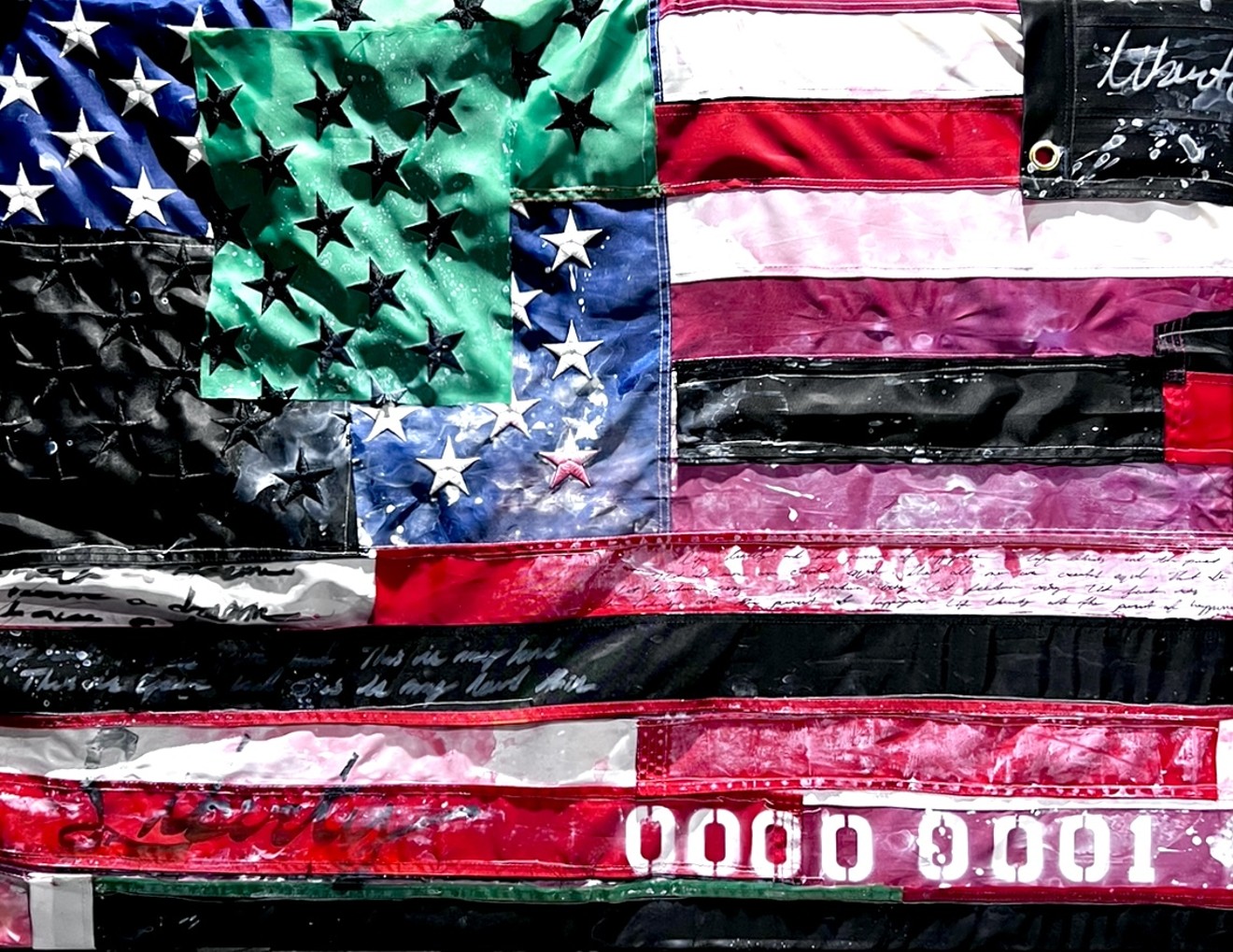
Brandon Clarke's re-imagining of the birth of America at its core, stitching the stars and stripes to include all the people groups who helped build it
Eye and Heart Photography
[
{
"name": "Editor Picks",
"component": "17482312",
"insertPoint": "4",
"requiredCountToDisplay": "1"
},{
"name": "Inline Links",
"component": "18711090",
"insertPoint": "8th",
"startingPoint": 8,
"requiredCountToDisplay": "7",
"maxInsertions": 25
},{
"name": "Air - MediumRectangle - Combo - Inline Content",
"component": "17482310",
"insertPoint": "8th",
"startingPoint": 8,
"requiredCountToDisplay": "7",
"maxInsertions": 25
},{
"name": "Inline Links",
"component": "18711090",
"insertPoint": "8th",
"startingPoint": 12,
"requiredCountToDisplay": "11",
"maxInsertions": 25
},{
"name": "Air - Leaderboard Tower - Combo - Inline Content",
"component": "17482313",
"insertPoint": "8th",
"startingPoint": 12,
"requiredCountToDisplay": "11",
"maxInsertions": 25
}
]

